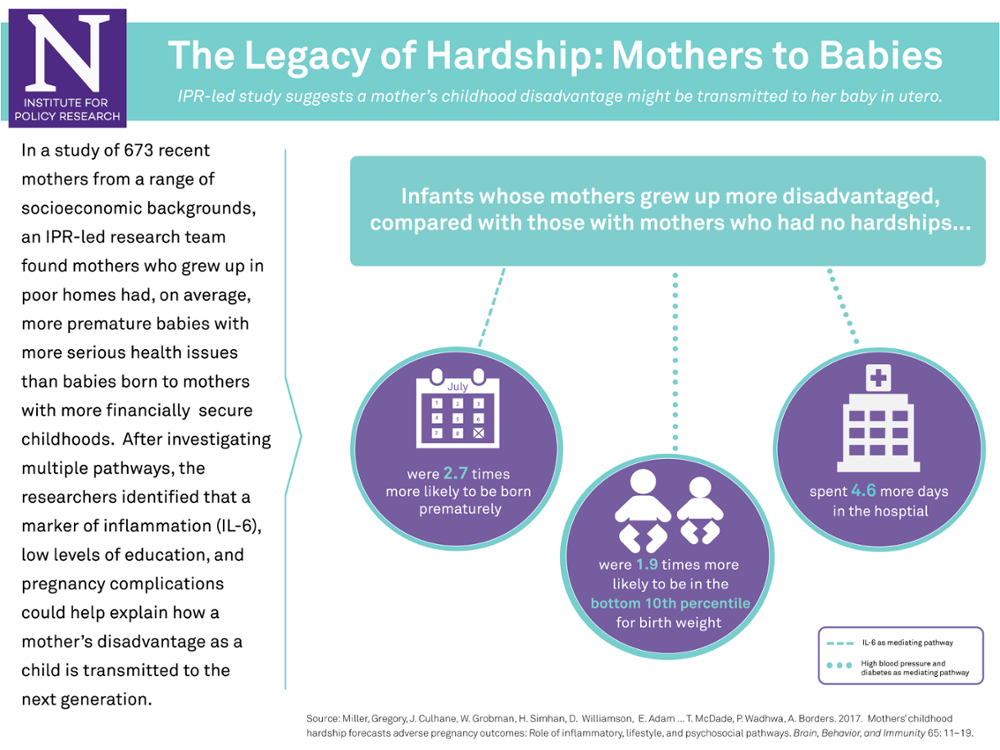The Legacy of Hardship
IPR-led study suggests a mother's childhood disadvantage might be transmitted to her baby in utero
Get all our news
Miller, IPR psychobiologist Emma Adam, IPR anthropologist Thomas McDade, and IPR associate Ann Borders, a professor of obstetrics and gynecology, surveyed 673 recent mothers about their family’s financial situation when they were growing up. The researchers then assigned each subject a “disadvantage score,” with a higher score meaning her family had struggled more with money.
The researchers found multiple negative effects associated with a mother’s childhood disadvantage. A higher disadvantage score increased the likelihood of an infant being born preterm, being small for its gestational age, and being underweight. In addition, infants whose mothers grew up disadvantaged stayed in the hospital longer and were more likely to require admission to a special care nursery.
“For each additional type of disadvantage, a woman’s odds of adverse pregnancy outcomes increased by 20–40 percent,” the researchers wrote.
The negative effects persisted even when the researchers controlled for demographic variables, maternal education, and obstetrical factors. This suggests that “childhood hardships leave an imprint that is not simply explained by continued exposure to disadvantage,” the researchers explained.
So how exactly are mothers passing on the effects of economic hardship to their children? Miller and his colleagues find that inflammation—in particular the biomarker interleukin-6—could serve as a link between childhood disadvantage and future birth problems.
However, interleukin-6 did not explain why infants born to mothers with higher disadvantage scores were more likely to be underweight and stay in the hospital longer. These effects seem to be driven more by pregnancy complications, such as high blood pressure and diabetes.
Whatever the cause, the results highlight pregnancy as a sensitive period during which health disparities can be transmitted across generations.
Greg Miller is Louis W. Menk Professor of Psychology and an IPR fellow. Emma Adam is professor of human development and social policy and an IPR fellow. Thomas McDade is the Carlos Montezuma Professor of Anthropology and an IPR fellow. Ann Borders is adjunct assistant professor of medical social sciences and an IPR associate.
Published: April 24, 2018.
